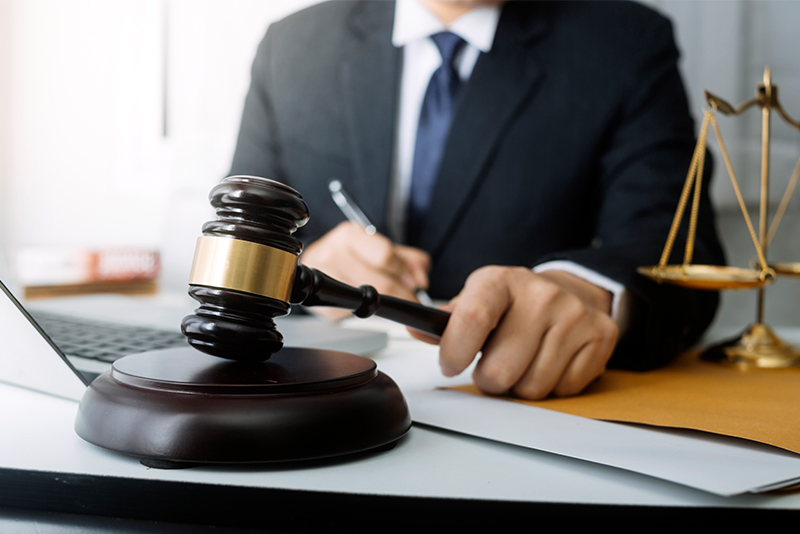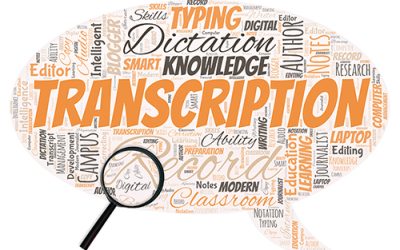Depositions are an essential tool used in the discovery process. During these pre-trial proceedings, witnesses provide sworn testimony under oath, usually out of court, but on the record. Deposition testimonies can have a significant impact on courtroom proceedings in both civil litigation and even criminal cases. Accurate deposition transcription is crucial for both the prosecution and defense in building their cases and presenting evidence in a trial. Let’ s explore how deposition testimonies and their transcripts serve as a valuable source of information and evidence during courtroom proceedings.
Role of Deposition Testimonies in Courtroom Proceedings
Deposition testimonies are considered sworn statements under oath. They allow both the prosecution and defense to gather information, assess the strengths and weaknesses of their case, and formulate their trial strategy. Judges and juries may use depositions to evaluate the credibility and reliability of witnesses during trial.
Attorneys use deposition testimonies to:
- Identify key witnesses, understand their potential testimony, and decide whom to call as witnesses during the trial.
- Discover relevant facts and gather information about the case from the deponent, which can help attorneys build trial strategy and prepare for cross-examination.
- Present evidence during the trial and impeach the credibility of a witness who provides inconsistent testimony during trial.
- Clarify the facts and issues in dispute, leading to settlement negotiations and more efficient resolution of the case.
- Explore the qualifications, opinions, and methodologies of experts before trial in cases involving expert witnesses.
- Streamline the trial by limiting the scope of witness examinations, reducing the time and resources required for the trial.
By helping to discover and preserve evidence and assist in trial preparation, deposition testimonies contribute to the overall efficiency and effectiveness of the judicial system. However, it is important to note that the impact of deposition testimonies can vary depending on the specific circumstances of the case, the credibility of the witnesses, and the strategies used by the attorneys.
How Deposition Transcripts help Attorneys in the Legal Process
A deposition transcript is a written record of witness testimony at a deposition. It is common practice for attorneys to rely on a legal transcription company to create an accurate and complete record of everything stated by the individuals present in the room.
Let’ s look at the significance of using deposition transcripts in the trial process.
- To introduce witness statements: Transcripts help to establish inconsistencies or falsehoods in witness statements. During a deposition, witnesses answer questions posed by both the prosecution and defense, and these responses are recorded verbatim. If witnesses change their testimony during the trial, the transcript can be used to impeach their credibility.
- To refresh witnesses’ memory: Attorneys can use deposition transcripts to refresh a witness’s memory. If witnesses find it difficult to recall specific details or events during trial, attorneys can revert to the written record to jog their memory about their statements and the information provided during their deposition.
- To impeach a witness: If a witness makes contradictory statements or demonstrates bias during the trial, their previous deposition can be used to challenge their credibility. . Attorneys can use the transcript to cross-examine the witness by pointing out inconsistencies. This can significantly impact the jury’s perception of the witness and the overall strength of the case.
- To preserve testimony: Deposition transcripts provide a way to preserve witness testimony. If a witness becomes unavailable or unable to testify at trial, the deposition transcript can be read to the jury or presented as evidence. This ensures that crucial testimony is not lost due to unexpected circumstances.
- To support expert testimony: An expert witness is an individual who possesses specialized knowledge, skills, or expertise in a particular field or subject matter that is relevant to a legal case. Expert witnesses are commonly used in personal injury lawsuits, medical malpractice cases, intellectual property disputes, criminal trials, and so on. When a case involves an expert witness, deposition transcripts are useful to establish the expert’s knowledge, experience, and the basis for their conclusions. Accurate transcripts can assist the court in understanding complex issues and making well-informed decisions based on expert opinions and analysis.
- For opening and closing statements: Attorneys often use excerpts from the deposition transcript in their opening and closing statement to support their arguments. Using the transcript can help attorneys provide context, establish the sequence of events, or highlight key pieces of evidence. This can impact the jury’s understanding of the case and the evidence presented.
- To build a logical narrative: Deposition transcripts help attorneys build a coherent narrative for the trial. They can use the detailed account of witness testimonies to craft a logical and compelling account of events that supports their client’s position and legal arguments.
- To support settlement negotiations: During settlement negotiations, transcripts can help parties to evaluate the strength of the evidence obtained through depositions. This information can be used to reach a settlement agreement.
By enabling attorneys to present evidence, challenge witness credibility, and construct persuasive arguments during trials, deposition transcripts are invaluable tools in the legal system. Partnering with a legal transcription outsourcing company can help attorneys maintain accurate, compliant, and timely documentation that maintains transparency and ensures fair proceedings.
When choosing a deposition transcription service, make sure they can provide your transcripts in a format that is user-friendly and compatible with your legal software and tools. The commonly accepted formats for deposition transcripts are PDF, ASCII or plain text, RTF (Rich Text Format), LEF (Legal Electronic File), E-Transcript (.ptx), Word Processing Formats (e.g., DOCX), Video/Audio Formats with Transcripts, and HTML (Hypertext Markup Language). As the choice of format may also depend on the court’s or jurisdiction’s requirements, it’ s advisable to consult with your legal team and the court clerk if you have specific format-related concerns.
Streamline your legal workflow with professional legal transcription services!




